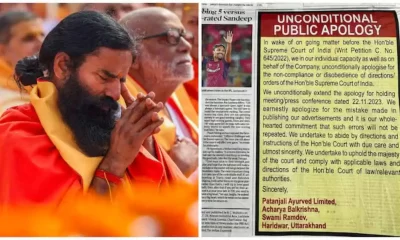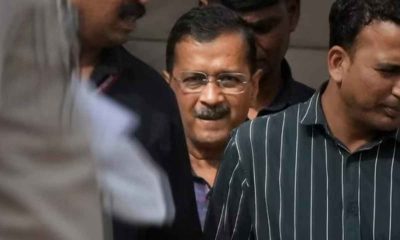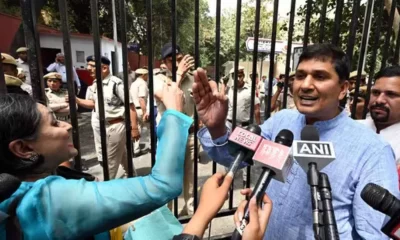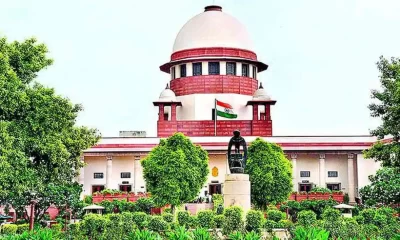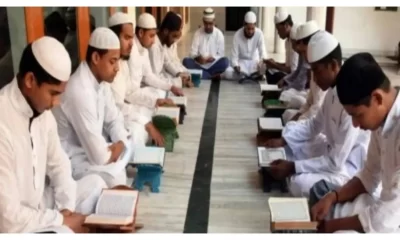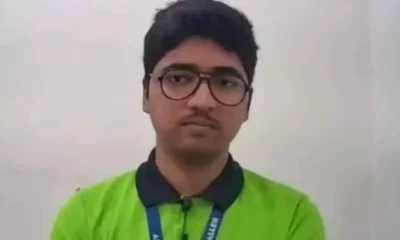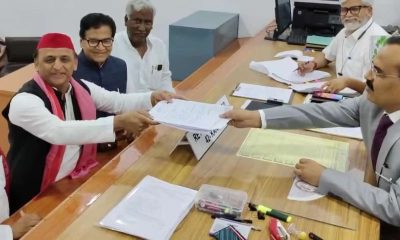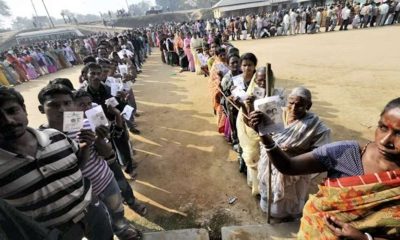India News
Ayodhya title dispute: CJI sets October 18 deadline for completing arguments
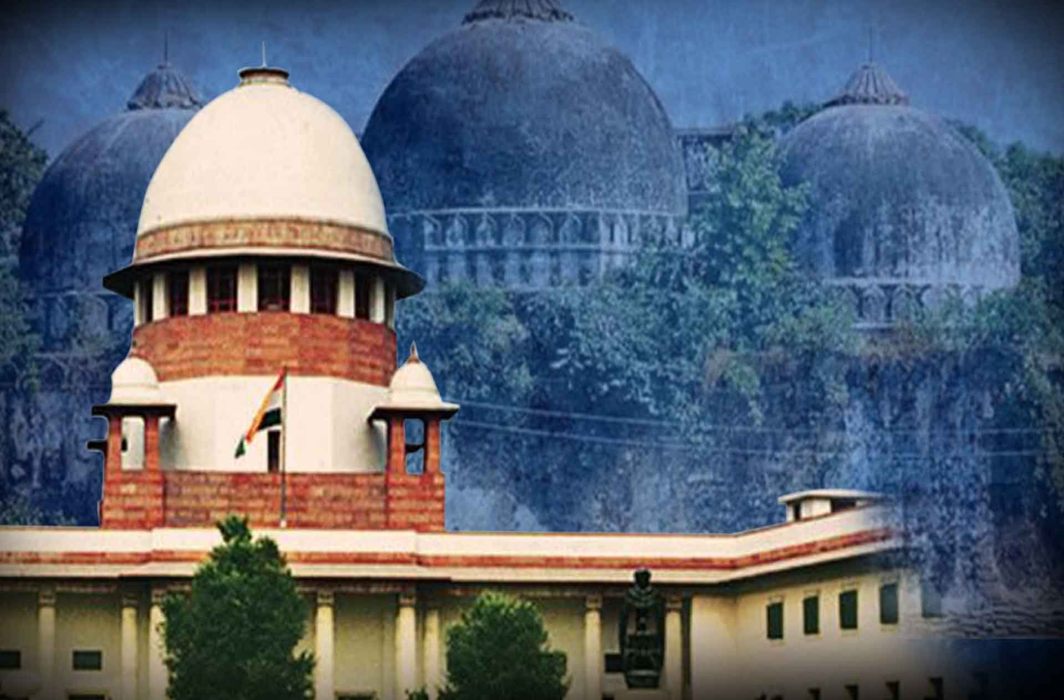
Chief Justice of India (CJI) Ranjan Gogoi today – Wednesday, Sep 18 – said arguments in Babri Masjid-Ram Janmabhoomi title dispute should be completed by October 18, if necessary by working extra hours.
He said in the meanwhile if the parties wish to settle the matter through mediation, they may do so.
The conclusion of hearings by Oct 18 would leave the CJI with a month to deliver the judgment before he retires on November 17. If the judgment doesn’t come before his retirement, the entire matter would have to be heard afresh.
On Wednesday, the CJI, after consulting the lawyers from both the sides, said he is hopeful that arguments can conclude by October 18.
“Let us all make joint efforts to complete it by October 18. If the need arises, we are ready to sit on Saturdays and some extra hours on weekdays to complete it,” observed Justice Gogoi.
This came a day after the Constitution Bench comprising CJI Ranjan Gogoi and Justices SA Bobde, DY Chandrachud, Ashok Bhushan and SA Nazeer sought to know from all parties in the case about a tentative time frame for completing their arguments.
“It will assist us to evaluate the time left for the writing the judgement on the matter,” CJI said.
Senior advocate Rajeev Dhavan, who has been leading the submissions on behalf of the Muslim side, said they would complete the arguments by the end of next week and will then take a day or two to argue their own civil suit.
From the Hindu side, Ram Lalla Virajman’s lawyers said they will take two days while other parties from the side said a couple of days more should be enough to complete their arguments.
Subsequently, the five judges on the Bench had a brief discussion among themselves and the deadline of October 18 was arrived at.
About a letter written by the mediation panel to the Bench, the court said parties are free to resort to settlement and if any settlement can be reached, it can be placed before it.
“The hearing of the appeals will continue without interruption. In the meanwhile if the parties wish to settle the matter through mediation, they may do so. Mediation is open to the parties and the mediation and terms of settlement should be kept confidential,” the CJI Gogoi said.
The panel had written to the Bench after the UP Sunni Waqf Board chairman wrote to the panel for resumption of mediation to give it one more shot. However, the Bench made it clear that the entire settlement proceedings will remain confidential as before.
Last month, the court had said mediation by the panel had failed to produce a solution. The Constitution bench had given mediation a shot despite objections from petitioners like the Uttar Pradesh government, saying mediation may help in “healing relations”. “It is not only about property. It is about mind, heart and healing, if possible,” the bench had said. Barring the Sunni Waqf Board and the Nirmohi Akhara, one of the Hindu petitioners, all were against mediation.
The mediation panel comprising former Supreme Court judge FM Kalifulla, spiritual guru Sri Sri Ravishankar and senior advocate Sriram Panchu had started consultations in March. The court was told that the panel did its best to arrive at a consensus in consultation with various petitioners but some parties did not agree.
Then, from August 6, the Supreme Court has been holding day-to-day hearings in the Ayodhya title dispute case. It is hearing 14 appeals against the Allahabad High Court order which apportioned the 2.77-acre disputed land equally among Nirmohi Akhara, Sunni Waqf Board and Ram Lalla Virajman.
The dispute involves the site in Ayodhya where the 16th-century Babri mosque stood before it was razed in 1992 by Hindu activists who believe that it was built on the ruins of an ancient temple marking the birthplace of Lord Ram. In riots following the mosque demolition, 2,000 people died across the country.
Education
Farmer’s son Nilkrishna Gajare Nirmalkumar from Maharashtra scores 100 NTA score in IIT-JEE Mains 2024
Nilkrishna Gajare’s father is a farmer and had to discontinue his own education after Class 12 as he faced financial difficulties. Gajare faced financial challenges growing up. However, his unwavering dedication and strategic approach to preparation set him apart from the crowd.
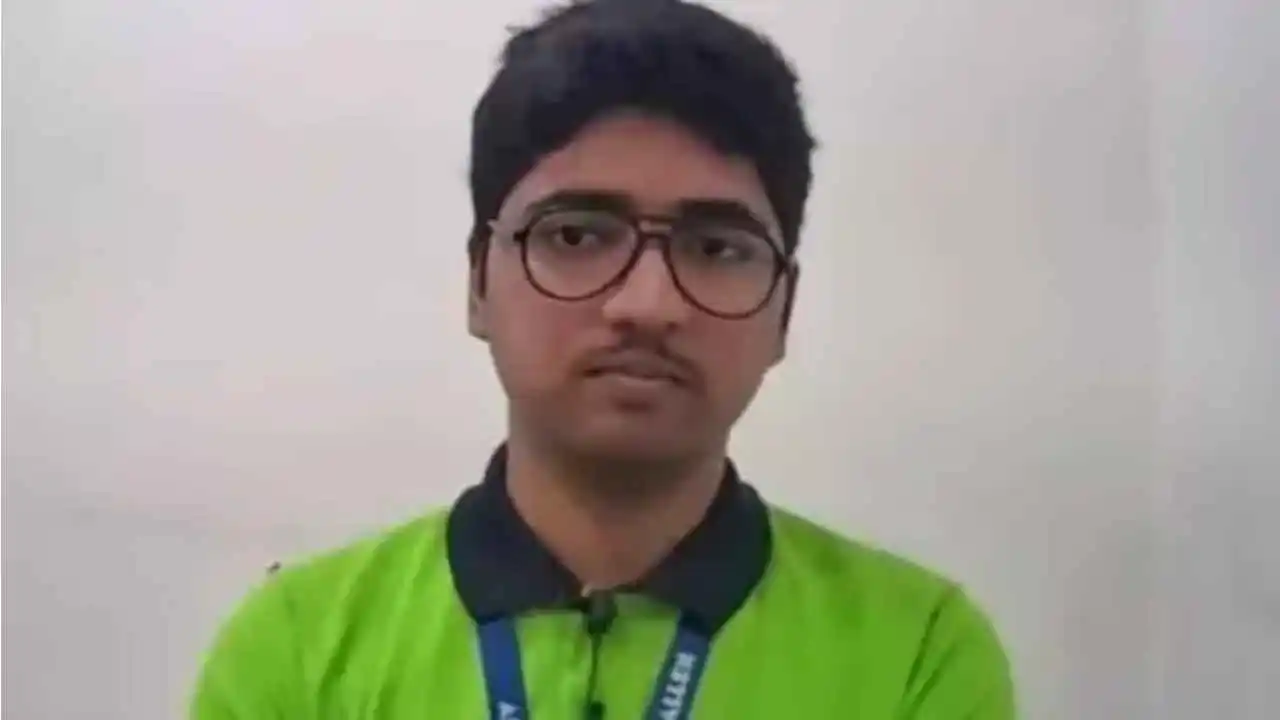
Nilkrishna Gajare, who hails from Maharashtra’s Washim, achieved an extraordinary feat by securing a perfect score of 100 in the JEE Main 2024 examination. His journey from humble beginnings to the pinnacle of success is a source of inspiration for many people.
Nilkrishna Gajare’s father is a farmer and had to discontinue his own education after Class 12 as he faced financial difficulties. Gajare faced financial challenges growing up. However, his unwavering dedication and strategic approach to preparation set him apart from the crowd, which resulted in his remarkable achievement of emerging as topper of one of India’s toughest Engineering entrance exams.
Nilkrishna Gajare had a strategic plan that helped him succeed in IIT-JEE 2024. According to Nilkrishna persistence is important and one should never stop trying until they understand a topic. He said being curious and asking questions are important traits of a good student. He said one should not be ashamed of asking questions.
Nilkrishna spent around 10-15 hours every day studying on his own for the JEE Main exam. He mentioned that he used his class notes for Physics and Physical Chemistry. For organic chemistry and inorganic chemistry, he relied on both notes and practice questions.
As for Mathematics, he believed that practicing regularly was the most important thing for him. Other interests of Nilkrishna include archery. He has participated at both state and national levels, and he finds joy in the sport. He said archery helps him understand the importance of focusing his attention on his goals. Nilkrishna likes watching movies and said they are a great source of enjoyment and relaxation.
He likes to watch a movie after exams and occasionally treats himself to one each week too. Gajare aims to keep up the pace for the JEE-Advanced exam and hopes to get into the IITs. He said he wants to secure admission in IIT-Bombay in the computer science branch.
2024 Lok Sabha Elections
Lok Sabha elections: Samajwadi Party chief Akhilesh Yadav files nomination from Kannauj
The Samajwadi Party has announced Akhilesh Yadav as its official candidate for the Kannauj Lok Sabha seat today
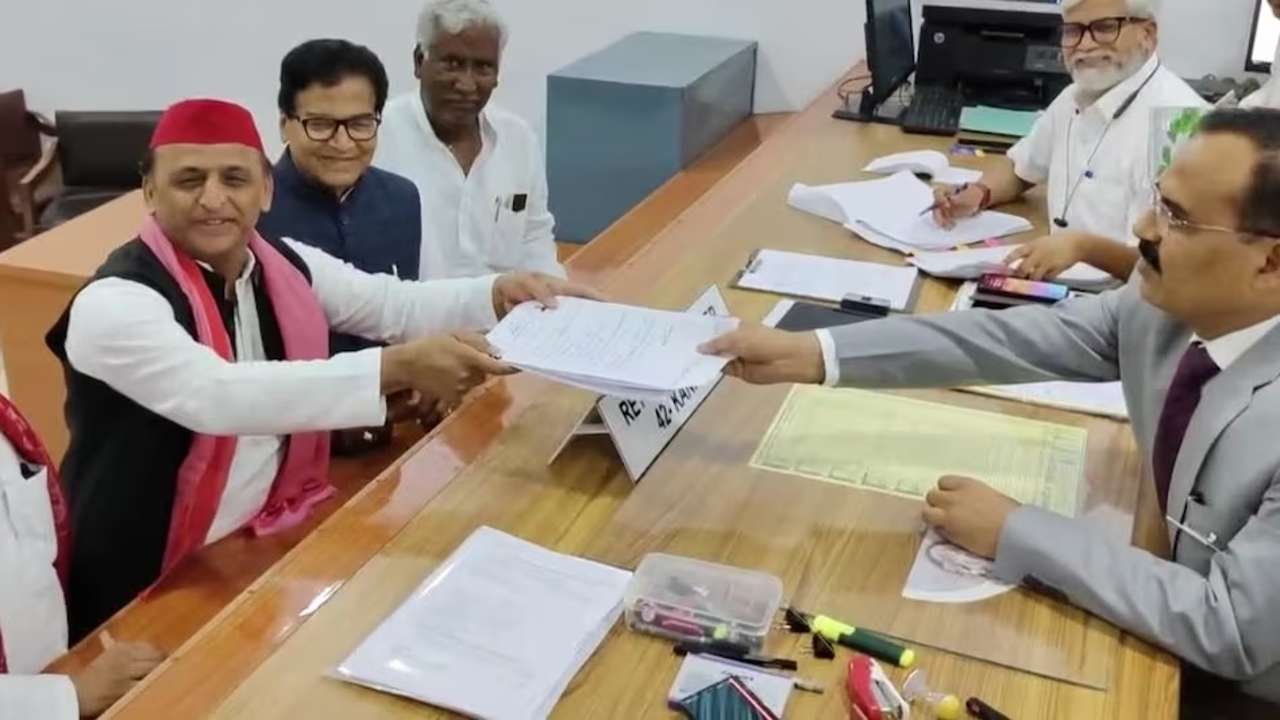
Samajwadi Party (SP) chief Akhilesh Yadav, submitted his nomination for the Kannauj Lok Sabha constituency ahead of tomorrow’s second round of voting. In front of Ram Gopal Yadav and other party leaders, the chief of the SP, who had previously contested the seat in 2000, 2004 and 2009, submitted the nomination.
Speaking with media, Ram Gopal Yadav said that SP would win the seat by a huge margin. The BJP candidate might lose his deposit in the seat, he said.
The Samajwadi Party has completely reversed its earlier plan to field former Mainpuri MP Tej Pratap Singh Yadav as their candidate, which is a significant political development.
Earlier, Akhilesh Yadav told reporters, people will find out when the nomination takes place, in reference to the speculations that he will contest for the seat. The historic victory of Kannauj is the subject of inquiry.
The former chief minister continued, the people have decided that the India bloc is coming as the future and the BJP will be history in this election.
Notably, elections for the Kannauj seat are scheduled for May 13, which would intensify the political drama that is now playing out in Uttar Pradesh. Previously regarded as the Samajwadi Party’s stronghold, the seat was lost by the party in the 2019 election when Subrat Pathak of the BJP won with a resounding victory.
The candidates competing for the following Uttar Pradesh seats will find out their destiny in the second round of voting, which is scheduled for tomorrow, Amroha, Meerut, Mathura, Baghpat, Aligarh, Ghaziabad, Gautam Buddh Nagar, and Bulandshahar.
Notably, two Bollywood celebrities running as BJP candidates in the second round are Hema Malini from Mathura and Arun Govil from Meerut. There are 91 contestants from UP competing in the second phase.
The seats in Gautam Buddha Nagar and Mathura are up for grabs, with a maximum of 15 applicants per seat. In Bulandshahr, six candidates are vying for the presidency. There are twelve contenders running in Amroha, eight in Meerut, seven in Baghpat, and fourteen in Ghaziabad and Aligarh.
1,67,77,198 votes will decide these candidates’ fates.
2024 Lok Sabha Elections
Bihar: Election Commission extends voting timings for 4 Lok Sabha seats due to heatwave
The voting period has been extended by two hours for a total of 299 polling stations
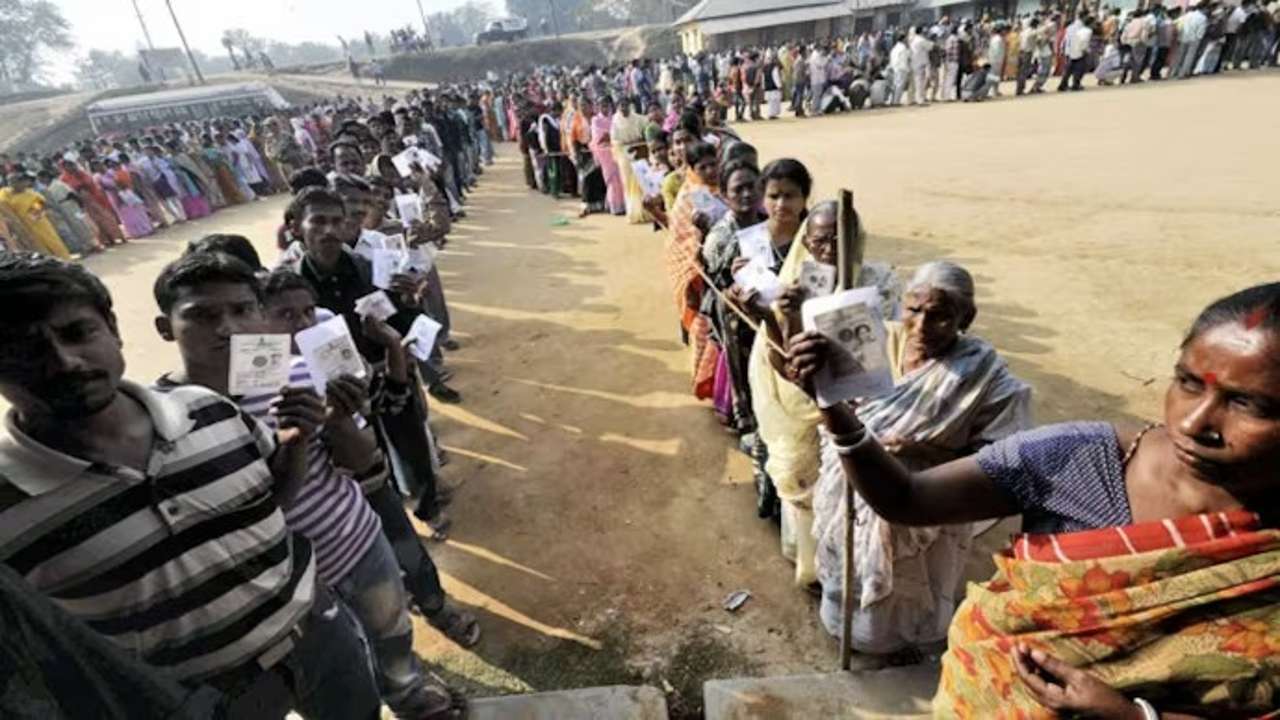
In accordance to the rising temperatures in Bihar, the Election Commission of India (ECI) has extended the voting hours for the upcoming three phases of the parliamentary polls at 1,700 polling places spread across four parliamentary seats, Banka, Madhepura, Khagaria, and Munger. The extension of the voting hours was announced by poll officials on Wednesday.
Polling generally takes place from 7 a.m. to 6 p.m. in most parts of the country, however, in certain isolated locations and in constituencies impacted by left-wing extremism, polls close two hours early to allow polling parties to move around easily.
The ECI gazette notification said the dates for the parliamentary constituencies of Banka (Katoria and Belhar assembly segments), which will hold elections on April 26, Madhepura (Mahishi assembly segment), Khagaria (Simri Bakhtiyarpur, Alauli, and Beldaur assembly segments), where voting will take place on May 7, and Munger (Suryagarha assembly segment), which will hold final phase elections on May 13, have been extended.
The voting period has been extended by two hours for a total of 299 polling stations in Simri Bakhtiarpur, 191 polling stations in Belhar AC of Banka, 172 polling stations in Katoria Assembly Constituency (AC) and 191 polling stations in Belhar AC of Banka, 207 booths in Mahishi AC of Madhepura seat, and 230 polling stations in Suryagarha AC of Munger.
In an effort to boost voter turnout, which fell to 49.26% in the first phase of polling on April 19 in Aurangabad, Gaya, Nawada, and Jamui from 53.47% in 2019 by 4.21%, the timing has also been extended.
Meanwhile, during the course of the next several days, temperatures in the southern states, namely Kerala and Karnataka, are predicted to rise by 2-3°C. In Southern Karnataka, where up to 14 constituencies are scheduled to vote in Phase 2, a heatwave warning has been issued. It is predicted to affect the districts of Tumkur, Davangere, Vijayapura, Yadgir, Koppal, Bagalkote, Kalaburgi, Raichur, Ballari, Chitradurga, Kolar, Chikkaballapura, Gadag, and Davangere.
The EC stated that a likely factor influencing voter turnout is the increase in temperature.
-
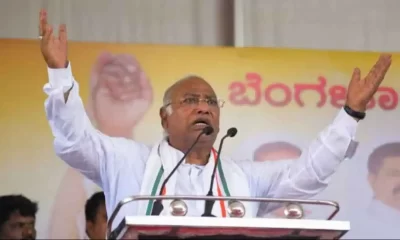
 2024 Lok Sabha Elections19 hours ago
2024 Lok Sabha Elections19 hours agoMallikarjun Kharge vows to continue politics till his last breath to defeat BJP
-
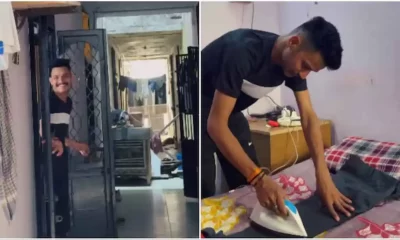
 Trending24 hours ago
Trending24 hours agoA waiter’s life: Social media users go emotional on watching viral video
-
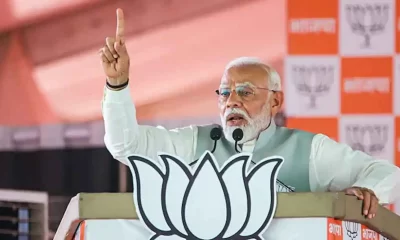
 2024 Lok Sabha Elections22 hours ago
2024 Lok Sabha Elections22 hours agoPM Narendra Modi slams Congress over Sam Pitroda’s inheritance tax remarks, accuses Congress of intending to impose higher taxes
-

 Entertainment21 hours ago
Entertainment21 hours agoMadhuri Dixit, Karisma Kapoor recreate Dil To Pagal Hai dance battle on Dance Deewane
-
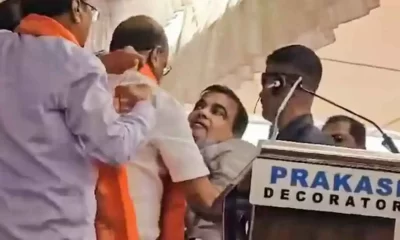
 2024 Lok Sabha Elections20 hours ago
2024 Lok Sabha Elections20 hours agoNitin Gadkari says he’s better now after collapsing at election rally in Maharashtra’s Yavatmal
-

 Entertainment2 hours ago
Entertainment2 hours agoBollywood stars Salman Khan, Alia Bhatt, Rekha, Sonakshi Sinha, Aditi Rao Hydari attend Sanjay Leela Bhansali’s Heeramandi premiere
-

 India News3 hours ago
India News3 hours agoTamannaah Bhatia summoned in illegal IPL streaming app case, to appear before cyber cell on April 29
-
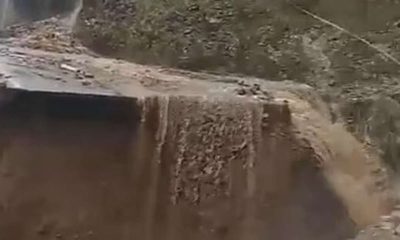
 India News2 hours ago
India News2 hours agoLandslide hits Arunachal Pradesh, highway linking Indo-China border affected

